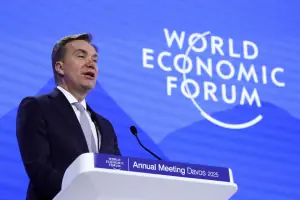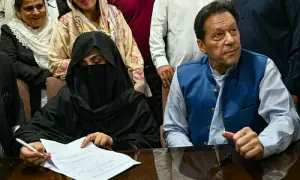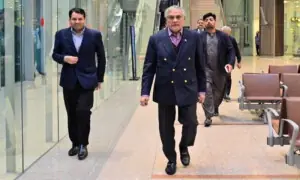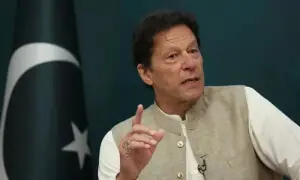Reserved seats: SC says ECP’s request for clarification merely a delaying tactic
6 min readThe Supreme Court issued on Saturday disposed of the Election Commission of Pakistan’s petition seeking clarification on the apex court’s July 12 order that awarded Imran Khan’s party more parliamentary seats, stating that the ECP’s request for clarification “is merely a delaying tactic.”
“The clarification sought by the commission in terms is nothing more than a contrived device and the adoption of dilatory tactics, adopted to delay, defeat and obstruct implementation of the decision of the Court,” the SC said in its order.
The bench comprised Justices Syed Mansoor Ali Shah, Munib Akhtar, Muhammad Ali Mazhar, Ayesha A Malik, Athar Minallah, Syed Hasan Azhar Rizvi, Shahid Waheed, and Irfan Saadat Khan.
It was issued at a time when the ruling coalition played the numbers game as the crucial vote for the constitutional amendment got closer. The bill, described as the “constitutional package”, if approved, would increase the retirement age by three years.
The apex court noted that the ECP’s request for clarification “is not valid” and pointed out that the country’s top electoral authority had already recognised Barrister Gohar as the PTI chairman.
The court reiterated that the ECP cannot change its position under the “guise” of seeking clarification.
In July, a full-court bench of the Supreme Court set aside orders of the Peshawar High Court and ECP taking away reserved seats from the Sunni Ittehad Council. The court ruled that the PTI should be considered a political party and given reserved seats.
The apex court noted that the electoral authority’s failure to perform the SC order might have consequences.
The ECP sought guidance from the SC on the statement that in absence of a valid organizational structure of PTI, who would confirm the political affiliation of the returned candidates (MNAs and MPAs) on behalf of PTI, who have filed their statements in light of the SC’s July 12 order.
The PTI had filed petitions, including correspondence between the party and the commission.
The order reiterated that the “lack or denial of an election symbol does not in any manner affect the constitutional and legal rights of a political party to participate in an election.
“Turning now to the specific clarification purportedly sought, the PTI in its reply has annexed a number of notices issued by the commission to the PTI through Barrister Gohar Ali Khan, in which it has itself identified the latter as the PTI chairman.”
While taking note of the ECP’s delaying tactics, the SC said: “This cannot be countenanced. Even on the application of elementary principles of law, the application filed by the Commission is misconceived.”
The SC was of the view that the commission cannot turn around and purport to seek guidance from the court with regard to how the certifications are to be dealt with after recognising Gohar as the PTI chairman.
“The commission cannot approbate and reprobate, taking whatever [shifting] stance as it desires and as may seem to suit its immediate purposes for the moment,” it said.
According to the order, the ECP appears to have overlooked the well-established de facto doctrine, which protects the actions of individuals holding office despite any potential legal issues regarding their position. The commission was reminded of its constitutional duty to acknowledge that the PTI is an officially registered political party, a fact that was acknowledged during the appeals hearing.
Both the majority of judges and the minority, including the CJP and two other learned judges, recognised the legitimacy of the party certificates issued by Gohar, affirming his role as PTI Chairman.
Such acknowledgment was deemed sufficient for the purposes of the short order.
It is “fundamentally illogical” to suggest that a political party, recognized as a legal entity, can operate effectively without any individuals—either de facto or de jure—managing its affairs.
The order added that the commission’s refusal to acknowledge such certifications was both “constitutionally and legally flawed” and could potentially lead to further legal repercussions under the Constitution and relevant laws.
According to the determined legal position, the candidates returned from the PTI are recognised as official members of PTI’s parliamentary party in both the National Assembly and the relevant provincial assemblies for all constitutional and legal purposes. The commission’s attempts to obscure the legal standing were “strongly criticised.”
The list required to be issued by the commission was “nothing more than a ministerial act, for the information and convenience” of all concerned, and has no substantive effect.
“Nonetheless, the continued failure of, and refusal by, the commission to perform this legally binding obligation may, as noted, have consequences. This obligation must be discharged forthwith,” it said.
ECP says ‘won’t accept any threats’
In reaction to the Supreme Court order, sources with the ECP said that it “will not accept any threats against it” and added the matter was still under consideration.
They were of the view that it was “incorrect” to assume that the commission has recognised Barrister Gohar as the PTI chairman. They added that the issue of PTI’s intra-party elections “remains unresolved and is still being examined”.
The ECP has aimed to resolve the matter “promptly while noting that PTI has repeatedly employed delaying tactics,” they stated. Sources said the ECP was not responsible for any delays.
Background
Members of Imran Khan’s political party, the PTI, were forced to run as independent candidates in the February general elections after the SC ruled that the party’s internal elections were flawed. As a result, the PTI candidates were not allowed to use the party’s cricket bat symbol during the campaign.
Despite running as independents, the PTI-backed candidates won the most seats in the National Assembly. To secure the reserved seats, they joined the religiopolitical party, the SIC.
The reserved seats are allocated to different political parties in proportion to the number of general seats each party wins during elections. This is done to promote greater political representation and inclusion of these traditionally underrepresented groups in the government.
The ECP decided not to allocate the reserved seats to them on “technical grounds” and distributed the SIC’s share among other parties.
Also, read this
Judicial Commission of Pakistan ‘finalises draft rules’ for appointment of judges
Supreme Court statement confirms govt plans for CJP’s ‘fixed tenure’
Bill tabled in Senate to increase number of Supreme Court judges
The outcome of the case can be politically significant, there are possibilities that it may impact the National Assembly composition. Khan’s party is hopeful of winning 78 reserved seats in Parliament given to the rival parties in elections.
In a letter to the apex court, the country’s top electoral authority reiterated that the SIC was ineligible for the reserved seats and there was “no flaw” in the ECP’s and PHC’s decisions as it was “under the Constitution and law.”
The ECP noted that non-Muslims cannot be SIC members under the party’s constitution.
For the latest news, follow us on Twitter @Aaj_Urdu. We are also on Facebook, Instagram and YouTube.






















Comments are closed on this story.